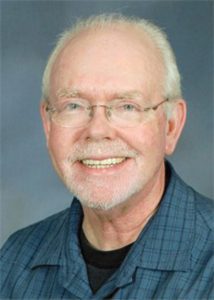The Valley Chronicle - Clergy Corner: Rising from the ashesng
Clergy Corner: Rising from the ashes
·
3 min read
[caption id="attachment_15804" align="alignright" width="214"] Photo File
Photo File
Pastor Rick Puls[/caption] ■ Pastor Rick Puls / Contributed I facilitated a weight loss class once. We not only focused on diet and exercise, but also looked at family of origin issues that can impact the way that we view ourselves regarding weight, and spiritual issues that determine our perceptions about God. For example, some individuals who were sexually molested as children or youth gain weight in an unconscious effort to make themselves “less attractive” to the perpetrators of the abuse. The weight can stay on, despite the fact that the abuse occurred decades ago, as a defense against others maltreating them. One of the participants in the weight loss group faithfully attended every session and was determined to gain insight into the reasons for her previous inability to lose. A few weeks into the course, during a time of closeness with her husband, she had a strong emotional reaction as memories of long repressed abuse flooded into her thoughts. This was the beginning of a period of gradual healing from the trauma she experienced as a young girl. We all experience traumatic events in our lives from time to time. Trauma can be categorized in different forms. Acute trauma involves a single event that happens in one’s life. It could come in the form of a car accident, theft, witnessing a violent event or an experience that threatens an individual’s physical or emotional safety. Chronic trauma results from incidents that have occurred over and over again in a person’s life, including, for example, long term child abuse, war or combat situations, ongoing sexual abuse, or recurring domestic violence. Complex trauma describes both a person’s exposure to multiple traumatic events—often of an invasive, interpersonal nature—and the wide-ranging, long-term effects of this exposure. The ongoing effects of trauma include: developing numbness to the trauma (detaching emotions from thoughts and actions); extreme anger or sadness; emotional outbursts; experiencing shame as a response to the trauma; physical responses, like shaking; sleep problems and insomnia; breathing problems; gastrointestinal problems; high blood pressure or cardiovascular disorders; substance abuse disorders; and the development of Post-Traumatic Stress Disorder. Perhaps you, or someone you know, are currently experiencing one or more of these effects and don’t know what to do about them. The Bible is filled with compassion, comfort, and healing for the traumatized. Psalm 91:4-6 says, “He will cover you with his pinions, and under his wings you will find refuge; his faithfulness is a shield and buckler. You will not fear the terror of the night, nor the arrow that flies by day, nor the pestilence that stalks in darkness, nor the destruction that wastes at noonday.” God provides safety and protection to those who are broken. Isaiah 41:10 adds, “Fear not, for I am with you; be not dismayed, for I am your God; I will strengthen you, I will help you, I will uphold you with my righteous right hand.” God’s compassion is active. He promises to strengthen, help, and uphold you. On Friday, Jan. 18, at 10 a.m. Hemet Valley Christian Church will offer a workshop called, “Rising from the Ashes,” in which you will learn practical, Biblical steps on how to recover from past trauma. We hope to see everyone there!
Dr. Rick Puls is pastor of the Hemet Valley Christian Church located at 330 S. Franklin Street in Hemet.
 Photo File
Photo FilePastor Rick Puls[/caption] ■ Pastor Rick Puls / Contributed I facilitated a weight loss class once. We not only focused on diet and exercise, but also looked at family of origin issues that can impact the way that we view ourselves regarding weight, and spiritual issues that determine our perceptions about God. For example, some individuals who were sexually molested as children or youth gain weight in an unconscious effort to make themselves “less attractive” to the perpetrators of the abuse. The weight can stay on, despite the fact that the abuse occurred decades ago, as a defense against others maltreating them. One of the participants in the weight loss group faithfully attended every session and was determined to gain insight into the reasons for her previous inability to lose. A few weeks into the course, during a time of closeness with her husband, she had a strong emotional reaction as memories of long repressed abuse flooded into her thoughts. This was the beginning of a period of gradual healing from the trauma she experienced as a young girl. We all experience traumatic events in our lives from time to time. Trauma can be categorized in different forms. Acute trauma involves a single event that happens in one’s life. It could come in the form of a car accident, theft, witnessing a violent event or an experience that threatens an individual’s physical or emotional safety. Chronic trauma results from incidents that have occurred over and over again in a person’s life, including, for example, long term child abuse, war or combat situations, ongoing sexual abuse, or recurring domestic violence. Complex trauma describes both a person’s exposure to multiple traumatic events—often of an invasive, interpersonal nature—and the wide-ranging, long-term effects of this exposure. The ongoing effects of trauma include: developing numbness to the trauma (detaching emotions from thoughts and actions); extreme anger or sadness; emotional outbursts; experiencing shame as a response to the trauma; physical responses, like shaking; sleep problems and insomnia; breathing problems; gastrointestinal problems; high blood pressure or cardiovascular disorders; substance abuse disorders; and the development of Post-Traumatic Stress Disorder. Perhaps you, or someone you know, are currently experiencing one or more of these effects and don’t know what to do about them. The Bible is filled with compassion, comfort, and healing for the traumatized. Psalm 91:4-6 says, “He will cover you with his pinions, and under his wings you will find refuge; his faithfulness is a shield and buckler. You will not fear the terror of the night, nor the arrow that flies by day, nor the pestilence that stalks in darkness, nor the destruction that wastes at noonday.” God provides safety and protection to those who are broken. Isaiah 41:10 adds, “Fear not, for I am with you; be not dismayed, for I am your God; I will strengthen you, I will help you, I will uphold you with my righteous right hand.” God’s compassion is active. He promises to strengthen, help, and uphold you. On Friday, Jan. 18, at 10 a.m. Hemet Valley Christian Church will offer a workshop called, “Rising from the Ashes,” in which you will learn practical, Biblical steps on how to recover from past trauma. We hope to see everyone there!
Dr. Rick Puls is pastor of the Hemet Valley Christian Church located at 330 S. Franklin Street in Hemet.
S
